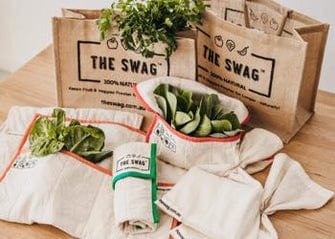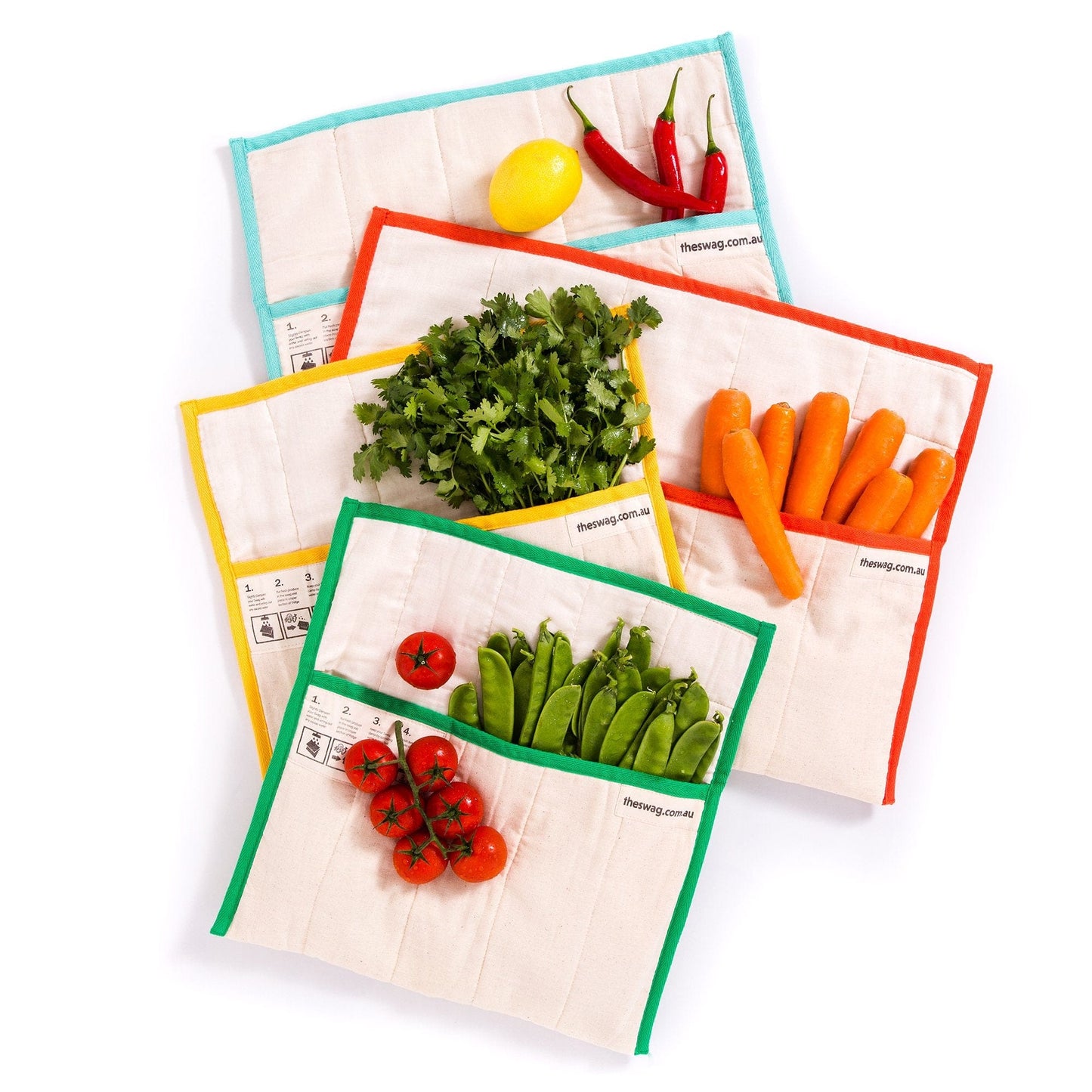Ethylene Gas Explained & How You Should Store Your Food Properly
When it comes to fruit ripening, there's a silent orchestrator at play: ethylene gas. The name sounds scary, but don’t worry. It’s a naturally occurring compound, responsible for that perfectly ripened banana or juicy, sweet peach. But what exactly is ethylene gas, why do fruits produce it, and could it potentially harm us? Let's delve into the fascinating world of ethylene gas and explore why The Swag Bag is your go-to solution for fruit freshness.
What is Ethylene Gas?
Ethylene gas, often referred to as the "ripening hormone," is a naturally occurring plant hormone. It plays a pivotal role in various stages of a plant's life, particularly in the ripening of fruits. Ethylene works like a secret messenger, setting off a chain reaction of natural events that eventually lead to the fruit getting ripe, juicy and delicious.
Why Do Fruits Produce Ethylene?
Fruits produce ethylene as part of their natural ripening process, and it serves several vital purposes:
- Autocatalytic Ripening: Ethylene production increases as fruits ripen. It triggers a series of biochemical changes, including the conversion of starches to sugars and the softening of the fruit's flesh.
- Seed Dispersal: Ripe fruits often release ethylene to signal animals that the fruit is ready to be eaten. When animals consume the fruit, they disperse the seeds, aiding in the plant's reproduction.
- Coordination of Ripening: Ethylene enables fruits to coordinate their ripening process, ensuring they ripen together, which can also be advantageous for seed dispersal and attracting pollinators.
Is Ethylene Harmful to Us?
In its natural form and at the levels produced during fruit ripening, ethylene gas is not a threat to human health. It's a natural component found in various foods, with emissions from fruits typically well below any harmful thresholds. However, ethylene gas can accelerate the ripening and spoilage of neighbouring fruits and vegetables. This can lead to food waste and potentially expose us to spoilage-related toxins. That's why proper storage is key.
The Swag Bag: Your Ethylene Gas Guardian
Now, you might wonder how to keep ethylene gas from wreaking havoc on your fresh produce. The answer is The Swag Bag of course! These innovative, eco-friendly bags are designed to create the perfect microclimate for your fruits and vegetables. The Swag Bag's unique three-layer design includes a robust outer layer, a thick, absorbent layer, and a breathable inner layer. This inner layer allows for proper airflow while retaining moisture, effectively preventing ethylene gas buildup and slowing down the ripening process.
By using The Swag Bag, you can extend the freshness of your fruits and vegetables, reduce food waste, and minimise your exposure to potential spoilage-related toxins. It's not just a storage solution; it's an eco-conscious choice that keeps your produce at its peak.
How To Store Your Food To Prevent Spoilage
While ethylene gas influences fruit ripening, it's equally important to know which foods shouldn't be stored together to prevent premature spoilage. Check out our tips to maintain your produce's freshness:
- Keep ethylene-producing fruits (e.g., apples, bananas, avocados, pears, plums, tomatoes etc) separate from ethylene-sensitive items (e.g., leafy greens, broccoli, herbs, carrots, etc).
- Store onions and potatoes apart; the onions will release ethylene gas that can spoil the potatoes.
- Don't store bread near fruits; it can become stale faster due to ethylene exposure.
- Store herbs like basil and parsley in water-filled jars in the fridge for extended freshness.
In conclusion, ethylene gas is a natural player in the ripening process of fruits, and when harnessed correctly, it can enhance the quality of our produce. The Swag Bag's innovative design ensures that ethylene gas is managed effectively, helping you enjoy fresh, delicious fruits and vegetables while contributing to a sustainable, waste-free world. By combining proper food storage techniques with The Swag Bag's ethylene gas control, you'll master the art of preserving your produce and minimising waste. Happy eco-conscious eating!



